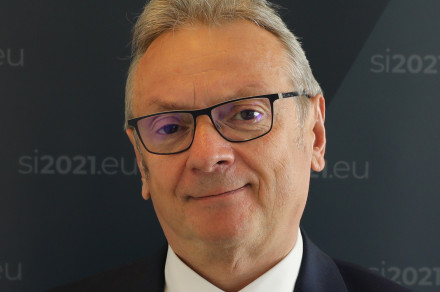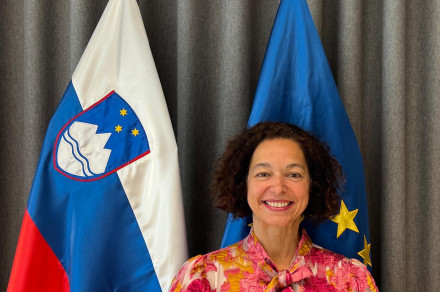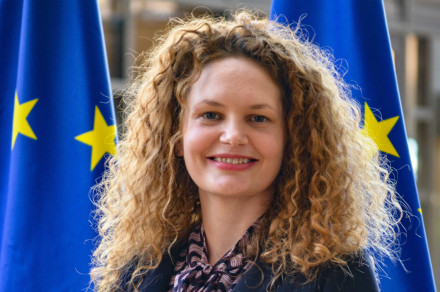About the Permanent Representation to the European Union Brussels
At the same time, Slovenia also contributes to the progress and positive functioning of the EU. We also take care of Slovenia's reputation by informing EU institutions, countries and the general public about Slovenia's achievements, characteristics and positions. In doing so, we cooperate and develop friendly relations with the EU institutions and all EU countries.
Leadership
From mission to representation
In the accession period of Slovenia and up to EU membership in 2004, the interests of the state were represented by the predecessor of the representation, the Mission of the Republic of Slovenia to the European Union. It was established in November 1992, and in 1993 it signed a cooperation agreement with the EU. On 10 June 1996, the parties concluded the Europe Agreement - on the day when Slovenia applied for membership in the union.
With Slovenia's accession to the EU on 1 May 2004, the country established a permanent representation to the EU in Brussels. The Permanent Representation of the Republic of Slovenia to the EU in Brussels is located in the diplomatic quarter of Brussels.
Scope and areas of operation
The main task of the Permanent Representation is to represent Slovenia's interests in the European Union, in all areas of the country's activity. The mission is staffed by consultants or diplomats from all ministries and services and bodies within the Government of the Republic of Slovenia, who are experts in individual fields.
Our diplomats regularly:
- represent Slovenia and present the positions of the Government of the Republic of Slovenia and the National Assembly of the Republic of Slovenia in the Council of the EU in the preparation of legislative and other legal acts of the EU;
- represent the country in the committees of the European Commission, which act according to the so-called comitology procedure in the preparation of proposals for EU implementing legislation;
- represent the interests of Slovenia in the case of alleged violations (before the Commission and the Court of Justice of the EU);
- work with MEPs and other EU institutions.
In Brussels, we also cooperate with representatives of the other 26 EU Member States, which together constitute the EU Council. Part of our activities is also cooperation with representatives of various interest groups and non-governmental organizations.
Diplomats of the SPBR cover all areas of life and work of Slovenian citizens for which the rights and obligations of European citizens are regulated in the EU. This includes, for example:
- the EU's common foreign and security policy,
- justice and home affairs,
- economy, internal market and industry, trade policy,
finance, - regional development,
- agriculture, fisheries, forestry, veterinary medicine,
- environment,
- health,
- infrastructure, telecommunications and energy,
- education, science, youth and sport,
- employment and social,
- culture.
Organisation
The Permanent Representation of the Republic of Slovenia in Brussels is managed by the Ambassador acting as Permanent Representative of the Republic of Slovenia to the EU. The structure of the Permanent Representation follows the structure and work of the Council of the EU.
Legislative documents adopted by heads of state and government, or ministers are drafted by working groups comprised of expert advisers for particular areas. The activities of the working groups are coordinated and steered by the Committee of Permanent Representatives (Coreper II) and the Committee of Deputy Permanent Representatives (Coreper I) that lay the groundwork for different ministerial meetings and formations of the Council of the EU.
The work at the Permanent Representation follows the structure of the two preparatory bodies:
- Coreper II, headed by the permanent representative, includes the following working areas: judiciary and internal affairs, trade policy, EU enlargement, finance and regional policy. Coreper II also covers the EU foreign and security policy dealt with by the Political and Security Committee.
- Coreper I, headed by the deputy permanent representative, includes the following working areas: economy, single market and industry, agriculture, fisheries, forestry, veterinary medicine, environment, health, infrastructure, telecommunication, energy, education, science, youth policies, sport, employment, social affairs and culture.
In addition, the Permanent Representation also has an internal service – Secretariat covering protection duties, protocol services, main administrative office tasked also with the management of classified information, IT services and accounting department.





